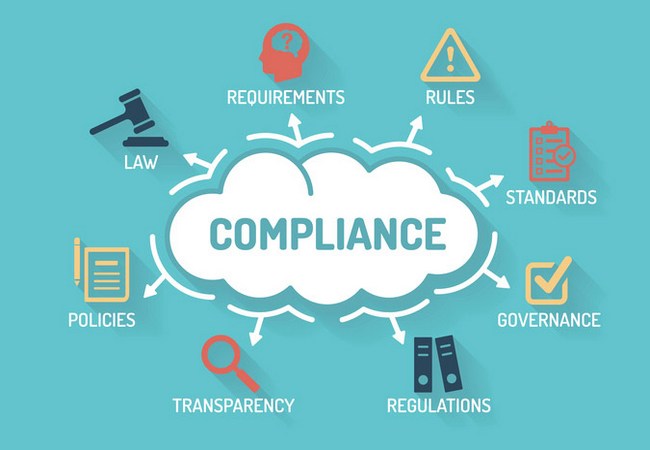The Future of Compliance Monitoring in Life Sciences Commercial Operations:
The life sciences industry thrives on technological advancements, constantly pushing boundaries to enhance an organization’s compliance efforts. But with innovation comes the complexity of adhering to applicable rules and regulations while navigating the intricate web of regulations surrounding commercial operations is no easy feat. This is where compliance monitoring steps in, ensuring ethical and responsible practices that help life sciences companies maintain transparency and accountability.

However, traditional compliance monitoring methods are often like looking for a needle in a haystack – time-consuming, resource-intensive, and prone to blind spots. The future of compliance monitoring demands a smarter and more agile approach.
Rethink Compliance Monitoring in The Age of Data:
Increasing rigorous transparency requirements and regulatory scrutiny make risk-based compliance monitoring imperative today. This necessitates a change in approach when considering you strategic compliance monitoring plan. If risk identification is weak and risk coverage is incomplete, there may be potential gaps in compliance efforts which can result in regulatory fines and penalties.
Many organizations require well-defined and comprehensive mitigation plans, exposing them to vulnerabilities. Consequently, organizations are shifting towards proactive risk mitigation, recognizing the value of data-driven insights in preventing and addressing risks. This approach is both cost-effective and aligns with regulatory standards.
Changing business expectations and activities, coupled with global restructuring, are pressuring compliance teams to adapt swiftly. In this dynamic landscape, there can be a disconnect between mitigation plans and monitoring activities, posing challenges. Resource constraints may also limit an organization’s ability to address identified risks efficiently and effectively.
Embrace the Future of Compliance Monitoring in Life Sciences:
Digital Transformation and Automation:
The future of commercial compliance lies in embracing digital transformation and automation. Businesses increasingly leverage technology to automate routine compliance tasks, minimize manual errors, and streamline processes. This enhances efficiency and allows personnel to focus on more strategic aspects of compliance management.
1. Advanced Data Analytics:
The use of advanced data analytics, including machine learning and predictive risk analytics, will become more prevalent. Organizations will harness the power of large datasets to gain actionable insights into their commercial activities. This data-driven approach enables companies to identify patterns, optimize processes, and make informed decisions to maintain compliance with internal policies and industry standards.
2. Real-time Monitoring:
Connected devices will provide instant data on parameters such as risk scores for potential HCPs you want to engage in conducive venues for speaker programs. Live, virtual, and field monitoring allows organizations to monitor compliance in real-time and respond promptly to deviations.
3. Artificial Intelligence (AI):
Artificial Intelligence will be a game-changer in compliance monitoring. AI algorithms will continuously learn from data patterns, identify trends, and provide insights into potential compliance risks. This proactive approach will help organizations address issues before they escalate.
4. Cloud-Based Solutions:
Cloud computing will continue to be a key enabler for compliance monitoring. Cloud-based solutions offer scalability, flexibility, and accessibility, allowing organizations to centralize compliance data and ensure it can be securely accessed from anywhere.
5. Cybersecurity Integration:
With the increasing threat of cyber attacks, cybersecurity measures will be integrated into compliance monitoring systems. Protecting sensitive data and security of compliance-related information will be paramount to maintaining trust and meeting regulatory requirements.
6. Collaborative Platforms:
Collaboration platforms that enable different stakeholders to share and access compliance-related information will become more prevalent. These platforms foster communication and transparency among internal teams, external partners, and regulatory authorities.
7. Customized Compliance Solutions:
The future of compliance monitoring involves the development and adoption of customized workflows. Businesses will seek tailored tools and strategies that align with the specific regulatory demands, ensuring a more precise and effective approach to compliance.
The Benefits of Embracing the Future:
- Proactive Risk Management: Predictive analytics and AI-driven solutions will empower companies to identify and mitigate compliance risks before they escalate, ensuring a proactive approach to risk management.
- Cost Savings: Automation and streamlined processes will lead to significant cost savings in compliance monitoring. Companies can allocate resources more efficiently, redirecting efforts towards other areas that require attention.
- Improved Decision-Making: Access to real-time data and advanced analytics equips decision-makers with the insights needed to make informed choices that align with compliance requirements.
Experience the Future of Compliance Monitoring:
qordata simplifies Life Sciences compliance with advanced data-driven solutions and analytics in an age of growing complexity. Working with 55+ Life Sciences clients, this highly reputable compliance solution provider has an industry-beating NPS of over 70%.
Automate your monitoring and auditing process to ensure an effective and efficient compliance program. Get an aggregated view of your key risks and leverage AI in creating a robust monitoring plan.
Conclusion:
As the life sciences industry evolves, so must the role of compliance officers who need to leverage modern compliance monitoring solutions. Embracing modern tech, data-driven insights, and proactive risk management will be pivotal for staying compliant in a rapidly changing business landscape.
The future of commercial compliance monitoring isn’t just about meeting standards; it’s about leveraging innovation to drive operational excellence and foster sustainable growth. By staying ahead of these trends, life sciences companies can navigate the complexities of commercial compliance with confidence and resilience.

Maria Khatun Mona is a Founder and Editor of Nursing Exercise Blog. She is a Nursing and Midwifery Expert. Currently she is working as a Registered Nurse at Evercare Hospital, Dhaka, Bangladesh. She has great passion in writing different articles on Nursing and Midwifery. Mail her at “maria.mona023@gmail.com”
